Western democracy's worst enemy is itself, not China
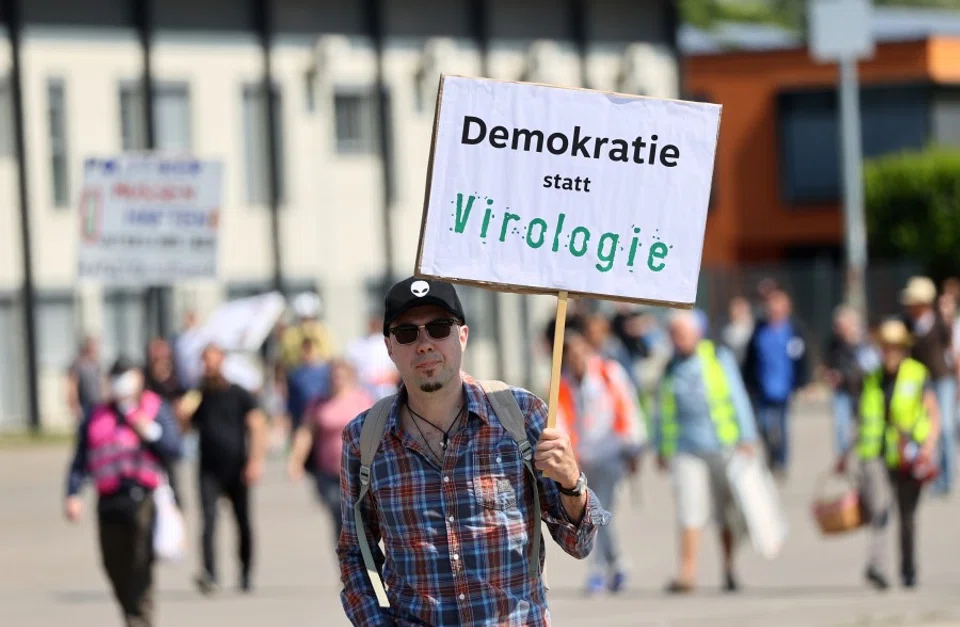
Max Baucus, former senator for Montana (Democrat) and former US ambassador to China, said in a CNN news programme that "the rhetoric [by the Trump administration] is so strong against China. ... We're entering a kind of an era, which is similar to Joe McCarthy back when he was red-baiting the State Department, attacking communism."
Baucus remarked that it was "a little bit like Hitler in the '30s" when "a lot of people knew what was going on was wrong ... but they didn't stand up and say anything about it. They felt intimidated. And now, in the United States, if anybody says anything reasonable about China, he or she feels intimidated. Right? His head is going to be chopped off ..." He expressed his worry that "people who were responsible in the US and especially responsible in Germany [in the Nazi era] couldn't speak up".
Baucus also said that this happened because the Trump administration realised that the economy is not doing well, partly because of the Covid-19 pandemic, and therefore had to blame China to divert attention and evade responsibility.
Baucus went on: "I think we're moving in that direction [towards the Hitler era] ... but there are a lot of very responsible people in America who know that this China bashing [by the Trump administration] is irresponsible, and we're going to pay a price, the more it continues ... But they're afraid to speak up."
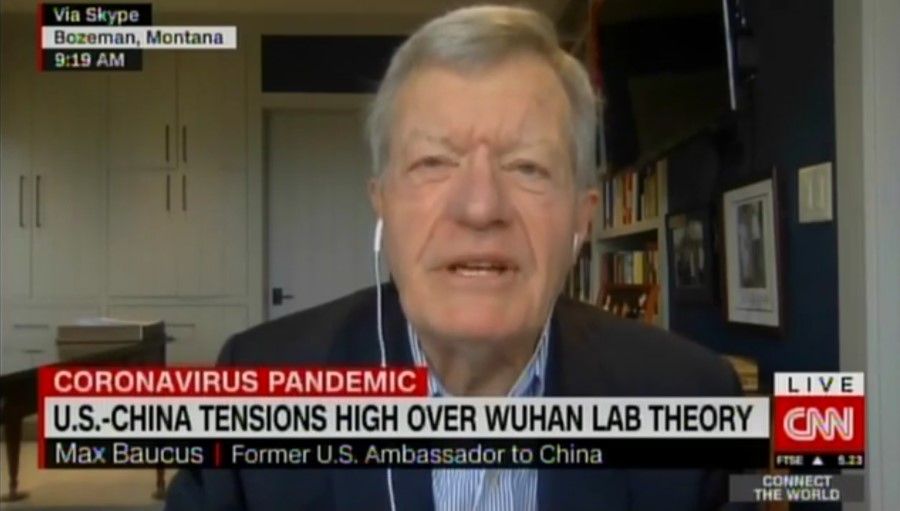
Baucus is worried because this should not occur in the US which has always been regarded as a model of democracy. From another perspective, it shows that the Covid-19 pandemic has resulted in an unprecedented crisis for Western democracy. There is truth in what Baucus has said, and he shares many people's concern for the future of Western democracy. Historically, similar crises have occurred, such as the rise of Hitler in Germany and Mussolini in Italy through democracy.
The UK and the US are the originators and beacons of democracy, and the most powerful forces supporting and spreading Western democracy. However, the pandemic is rapidly altering this.
These are a disgrace to Western democracy. Although the West has always wanted to dissociate fascism and Nazism from democracy, Hitler and Mussolini came to power through democratic means. Will history repeat itself and will the coronavirus pandemic once again result in a crisis for the West and Western democracy?
The development of Western democracy
In fact, it is no longer a question of whether this will happen, but one of the severity of the crisis. A 30 March 2020 New York Times article titled "For Autocrats, and Others, Coronavirus Is a Chance to Grab Even More Power" highlights the trend that autocracies are becoming more autocratic and democracies are shifting towards autocracies. As the Covid-19 pandemic brings the world to an abrupt halt and anxious citizens demand government action, it is evident that political leaders around the world are using executive powers to seize authoritarian power with little resistance.
The UK and the US are the originators and beacons of democracy, and the most powerful forces supporting and spreading Western democracy. However, the pandemic is rapidly altering this. While the governments of these two countries have gained more power, they have been ineffective in the fight against the pandemic.
The article says that in the UK, ministers have what a critic called "eye-watering" power to detain people and close borders. In addition: "In the United States, the Justice Department asked Congress for sweeping new powers, including a plan to eliminate legal protection for asylum seekers and detain people indefinitely without trial. After Republicans and Democrats balked, the department scaled back and submitted a more modest proposal." President Trump who views himself as a "wartime president" has invoked the Defense Production Act. He has also vetoed the Iran War Powers resolution, or what was an attempt to curtail the president's power to use military force against Iran without congressional approval. Trump seeks greater power as the pandemic wears on.
The situation in the EU is grim. The rapid spread of Covid-19 has forced EU countries to implement some emergency measures that are previously considered only possible in autocracies, such as restricting travel, banning assemblies and curtailing religious freedom. In the early stages of the pandemic, Věra Jourová, Vice President of the European Commission for Values and Transparency, pointed out that 20 EU member countries have imposed states of emergency to combat the pandemic.
Western democracy was introduced to these countries, and its practice often lacked a strong civilisational foundation. As a result, democracy can become a non-essential plaything for politicians in these countries.
Hungary is the most extreme among the EU countries by approving a controversial emergency law in which the parliament gives Prime Minister Viktor Orban sweeping powers to rule by decree for an indefinite time period and no elections can be held while the emergency powers remain in place. This law also introduces jail terms for spreading misinformation.
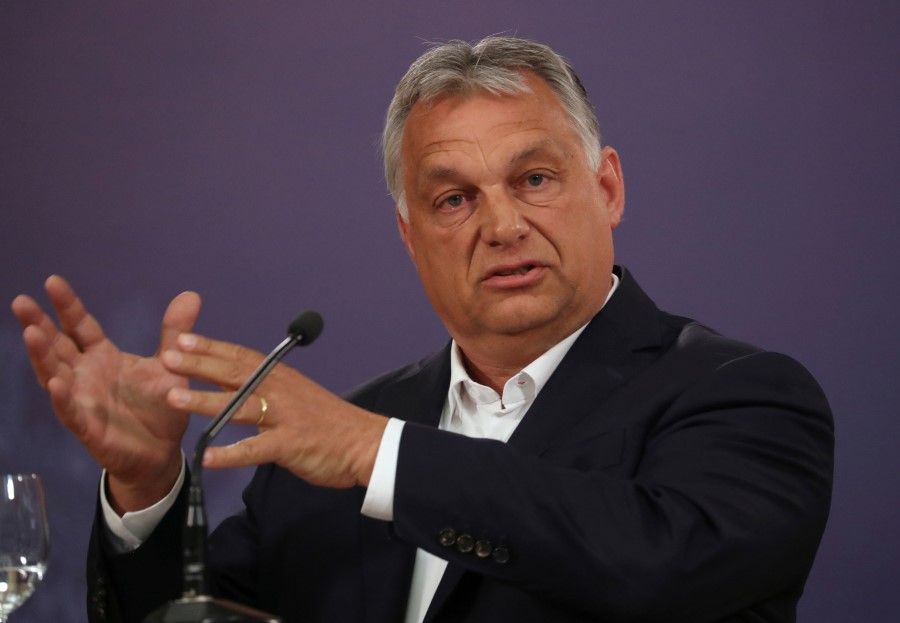
Spain and other EU countries have followed Hungary's example, albeit within the frameworks of their constitutions, by deciding to temporarily suspend their parliaments or hold virtual parliamentary voting. In Germany, Wolfgang Schäuble, President of the Bundestag, has proposed amending its Basic Law for a small emergency parliament to deal with the crisis. However, as the German constitution only allows for such measures in a state of war, opposition MPs have criticised the proposal, arguing that this is not the time to do so.
Beyond the core of democracies comprising Europe and the US, the situation in countries that adopt Western democracy is worse.Western democracy was introduced to these countries, and its practice often lacked a strong civilisational foundation. As a result, democracy can become a non-essential plaything for politicians in these countries.
The evident decline of Western democracy is primarily shown in the shrinking circle of democracy.
The New York Times article mentioned above includes various examples of countries tightening their grip on society. Invasive surveillance systems in countries such as South Korea "would have invited censure under normal circumstances", but have been praised for slowing virus transmission. Thai Prime Minister Prayuth Chan-o-cha of Thailand issued an emergency decree that included powers to "censor and shut down media if deemed necessary", while in the Philippines, emergency legislation granted President Rodrigo Duterte, who had once referred to the constitution figuratively as "toilet paper", extensive powers.
Elsewhere, Israeli Prime Minister Benjamin Netanyahu empowered the internal security agency to use counterterrorism technology to implement a system of tracking of citizens through their cellphones; Chile's declaration of a "state of catastrophe" and its deployment of military on the streets have had a hand in deterring the country's wave of social protests; and Bolivia has postponed a presidential election scheduled for May 2020, after disputed elections years last year and protests led to President Evo Morales' resignation.
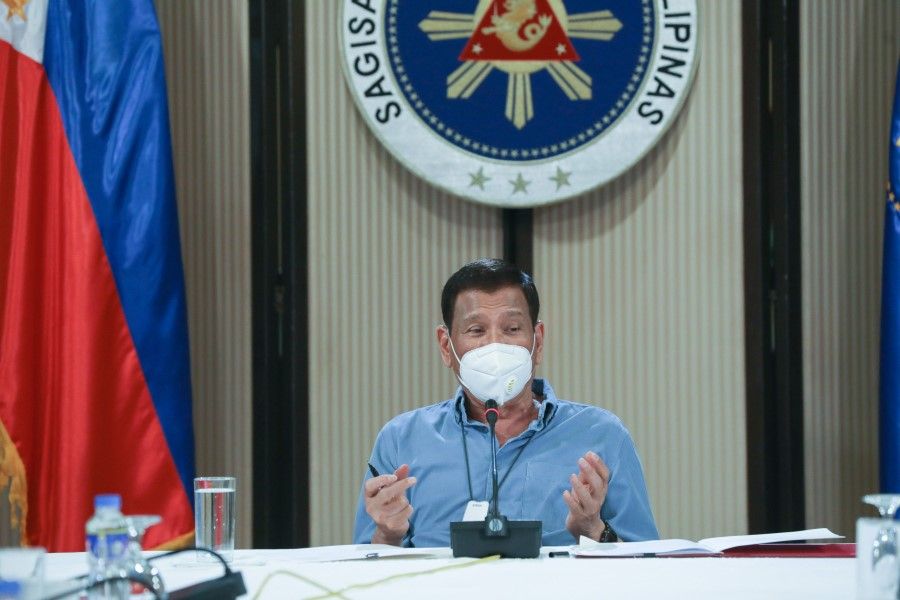
The transformation of Western democracy
The challenges confronting Western democracy, unprecedented since the 1930s, are as follows.
First, the shrinking circle of Western democracy.
The evident decline of Western democracy is primarily shown in the shrinking circle of democracy. Freedom House, a US human rights organisation, has recently published a Nations in Transit 2020 report on its survey of 29 countries in Central Europe and Central Asia. The report highlights that the number of democracies in this region is the lowest since 1995. In addition, Hungary, Serbia and Montenegro have dropped out of the group of democracies due to factors such as severe abuse of executive power, undermining of judicial independence, and corruption. For the first time since 2003, Serbia and Montenegro are no longer categorised as democracies.
It is foreseeable that if the Covid-19 pandemic persists, Western democracies and countries that adopt Western democracy will become increasingly autocratic.
Although Hungary was originally categorised as a democracy in 2005 and was lauded by Freedom House as a "democratic frontrunner", the report says that its democratic decline today is regarded as "the most precipitous ever tracked in Nations in Transit". Freedom House also warns of signs of democratic decline in Poland.
It is foreseeable that if the Covid-19 pandemic persists, Western democracies and countries that adopt Western democracy will become increasingly autocratic. The simple reason for this is that power is a very practical way to solve problems. Political leaders confronted with crises will solve problems in the way that they consider most effective, instead of acting in the manner as recommended by the West or Western organisations such as Freedom House.
If crises are the norm, politicians can similarly normalise autocracy.
Furthermore, many countries are no longer bothered by Western criticism, as they have legitimate reasons to criticise the assertions such as those made by Freedom House, an organisation affiliated with the US government. For example, a Hungarian government spokesperson has denounced the organisation as a means for the US government and its billionaire investors such as George Soros to exert control on politics in other countries, and any country that does not conform to the US's liberal view of democracy would get downgraded in its ratings, which makes these organisations an extension of American political influence overseas.
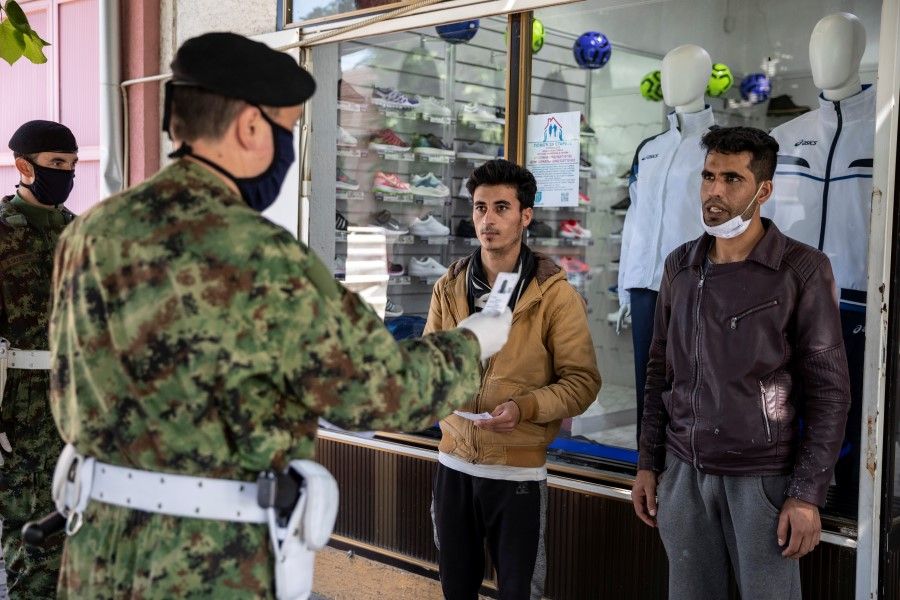
Second, there is no timetable for restoring normalcy in a democracy.
Typically, transforming a democracy to an autocracy is an extraordinary measure in extraordinary times, and politicians can return the power to the people once the crisis passes. However, the logic in the use of power lies in acquiring greater powers. To achieve that, politicians manipulate power. It is therefore not inconceivable that politicians normalise the extraordinary circumstances in their quest for power.
The complex and fragile modern society has faced incessant crises in recent decades, such as terrorism, financial crises, plagues and localised wars. If crises are the norm, politicians can similarly normalise autocracy.
However, in crises, the judiciary often abets the executive, while the legislature is often weakened.
Observers have noted that the gradual embedding of emergency laws enacted by governments in legal structures has become the norm. Over time, emergency decrees permeate legal structures and become normalised, said Douglas Rutzen, President of the International Center for Not-for-Profit Law in Washington DC in the above-mentioned New York Times report. His centre is tracking new legislations and decrees during the pandemic. "It's really easy to construct emergency powers. It's really difficult to deconstruct them," Rutzen added. Indeed, no one knows what will become of these emergency laws after the crisis. In fact, laws that were hurriedly promulgated in the past remain active today long after the crises for which they were enacted were over, such as the Patriot Act after the September 11 attacks.
Third, the lack of checks and balances of power.
The separation of powers is regarded as the essence of Western democracy, crowned by the legislative, executive, and judicial system of checks and balances of powers. However, in crises, the judiciary often abets the executive, while the legislature is often weakened.
In an article published by Deutsche Welle (dw.com), Tamara Ehs, an Austrian democracy researcher, defended the autocratic measures adopted by the executive authorities of democracies, arguing that the severity of an intervention is not intrinsically undemocratic. She said, "There are indications of how to tell whether a measure is justified: do the measures serve the purpose of fighting the virus and did they come about in an orderly process under the rule of law[?]"
By this description, a strict curfew can be implemented within a democratic framework, the article says. However, lines may be crossed if the authorities go beyond what is necessary and fail to observe the rules. Ehs went on to give the example of the "Easter decree" that the Austrian Ministry of Health recently wanted to enact, that would have allowed the police to search private residences unannounced to check if families had gathered for Easter. This proposal was abandoned after massive protests from the opposition and civil society.
Parliamentary control, as mentioned by Ehs, is undoubtedly crucial to democracy because "parliaments are platforms where voices are heard and where dissenting opinions crystallise. In a democracy, there are always alternatives." However, the powerful executive will implement measures to limit the power of the parliament. The curtailment of parliamentary activity in Hungary has also occurred in many other Western countries and especially in non-Western countries that have adopted Western democracy.
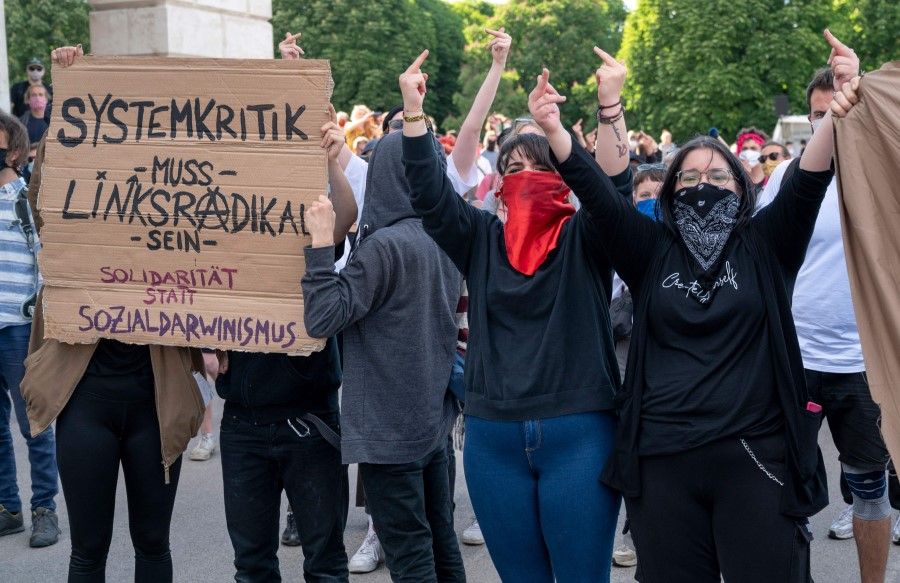
Fourth, trust is only a scrap of paper.
What about the people's trust in politicians? The people's trust has always been regarded as the advantage of politics in democracies, in which votes are the basis of power. If the people no longer trust those in power, they can vote against the incumbent in the next election. In other words, the incumbent has lost the trust of the people.
This is naive because human nature is such that heroes of the day desire to be heroes for a lifetime. The nature of politicians vested with power is unlikely to change...
However, as the pandemic continues, the people face unprecedented fears. They desire strong leaders to emerge as heroes or saviours, and are willing to accept restrictions on freedom. After the crisis, the people hope that these heroes revert to commoners and return the freedom that they have lost during the crisis.
This is naive because human nature is such that heroes of the day desire to be heroes for a lifetime. The nature of politicians vested with power is unlikely to change, as exemplified by Hitler and Mussolini who were deeply trusted by the people then.
Today, the US and Western democracies position themselves to fight a war with China to defend democracy, as though China threatens Western democracy. This is completely erroneous because the crisis confronting Western democracy comes from within itself and not from without. In fact, rarely are political systems, autocratic or democratic, destroyed by external forces. This holds true not only in the past and present but also in the future.
